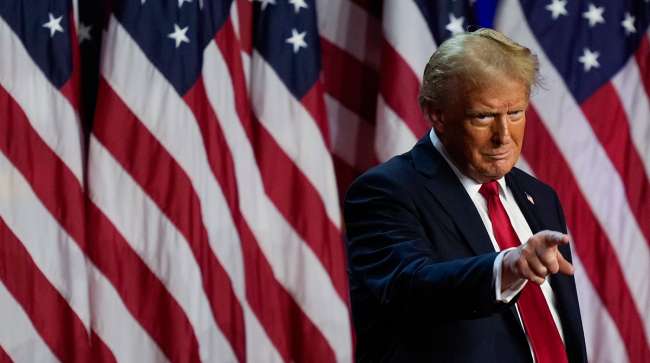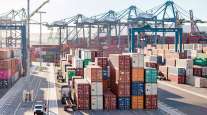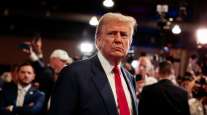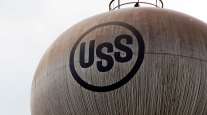Bloomberg News
Trump Victory Brings Risk of Tariffs

[Stay on top of transportation news: Get TTNews in your inbox.]
Business leaders around the world awoke Nov. 6 to a new reality with Republican Donald Trump set to return to the White House, promising greater U.S. protectionism, higher tariffs and tighter immigration policies.
CEOs, who for months had tiptoed around questions about a potential change in U.S. power, began confronting the new order in boardrooms and on earnings calls, where investors sought to price in the effect of a Trump win.
On a call to discuss the quarterly results of Norwegian chemical storage and transportation firm Odfjell SE, an analyst asked about the impact of Trump becoming the next U.S. president: “What will that mean for your markets?”
CEO Harald Fotland answered with a warning: “We will see more protectionism, and that might be an issue for exports out of the U.S.”
The people of America gave @realDonaldTrump a crystal clear mandate for change tonight — Elon Musk (@elonmusk) November 6, 2024
There could be a slight reduction in Odfjell’s activities in the U.S., Fotland said, and he also expects Trump to reverse part of the Inflation Reduction Act, which includes incentives that have attracted massive investments in greener energy to the U.S. “That is of course not good for the planet, but it might be good for Europe, which is struggling a bit because of that law.”
Tariffs were also on the mind of Shinji Aoyama, executive vice president of Japanese automaker Honda Motor Co. New levies on cars imported into the U.S. from Mexico, as Trump has pushed, “would have a big impact,” Aoyama said in an earnings briefing. “We can’t afford not to think about it.”
Shares of Honda fell on Nov. 6 in Tokyo, while Tesla Inc., led by major Trump backer Elon Musk, surged in premarket U.S. trading.
In Germany, BMW AG and Porsche AG led automakers lower over concerns that Trump will hike tariffs on cars imported from the region. The election “marks the beginning of the most difficult economic moment” in Germany’s post-war history, said Moritz Schularick, president of the Kiel Institute for the World Economy.
Some executives sought to take a diplomatic tone: When asked how a Trump presidency would affect Swiss-Belgian chocolate maker Barry Callebaut AG, CEO Peter Feld said the company will continue to serve customers in the U.S. “whoever is in charge,” and that the leadership switch “will not change any of the undertakings that we have.”
Marks & Spencer Group Plc chief financial officer Jeremy Townsend said the U.K. retailer is “pretty well hedged” for a Trump presidency, speaking on an earnings call Nov. 6.
Want more news? Listen to today's daily briefing above or go here for more info
Executives at Siemens Healthineers AG, the German maker of medical imaging equipment used widely in U.S. hospitals, outlined a similar approach.
When it comes to tariffs on the U.S.-China trade, “we are very, very well-positioned because basically we have a twin factory set up. We can deliver from China to China and we deliver to the U.S. from the U.S. and from Europe,” said CEO Bernd Montag.
Montag said the company now employs just as many people in the U.S. as it does in Germany, “so we are from a trade flow point of view much more balanced than sometimes people assume.”




